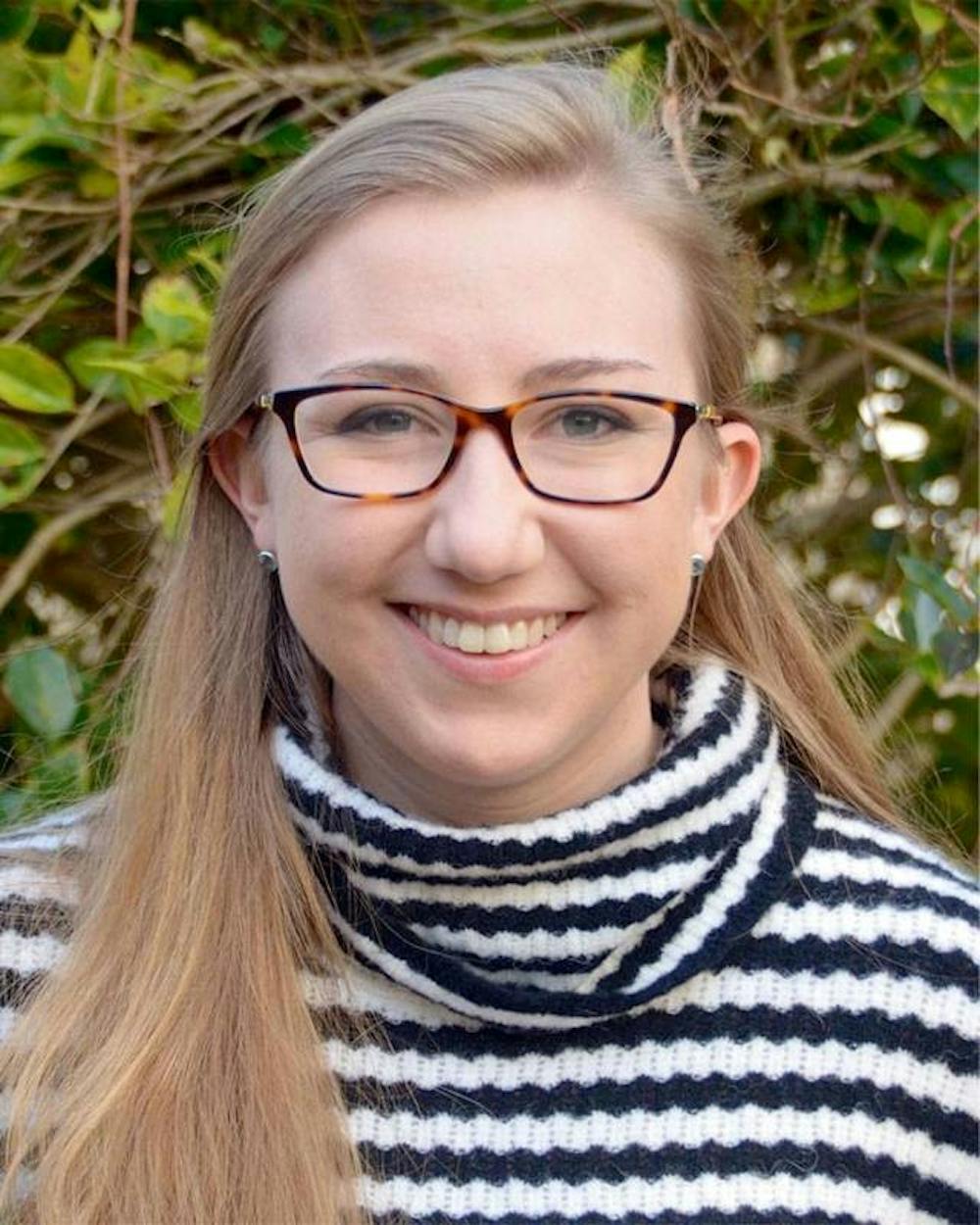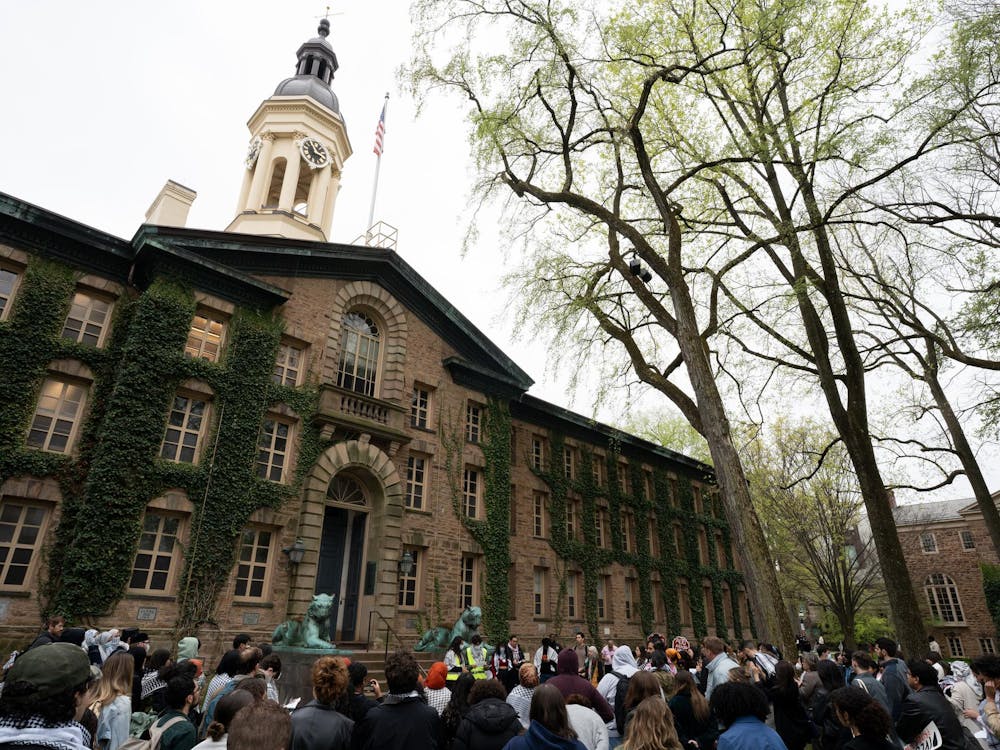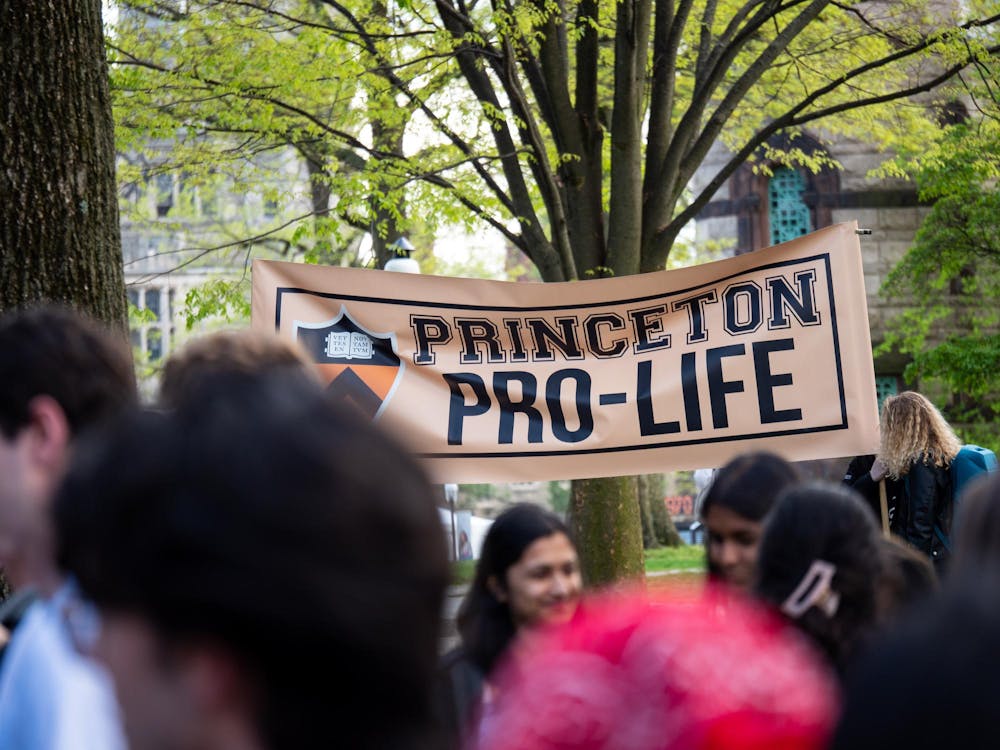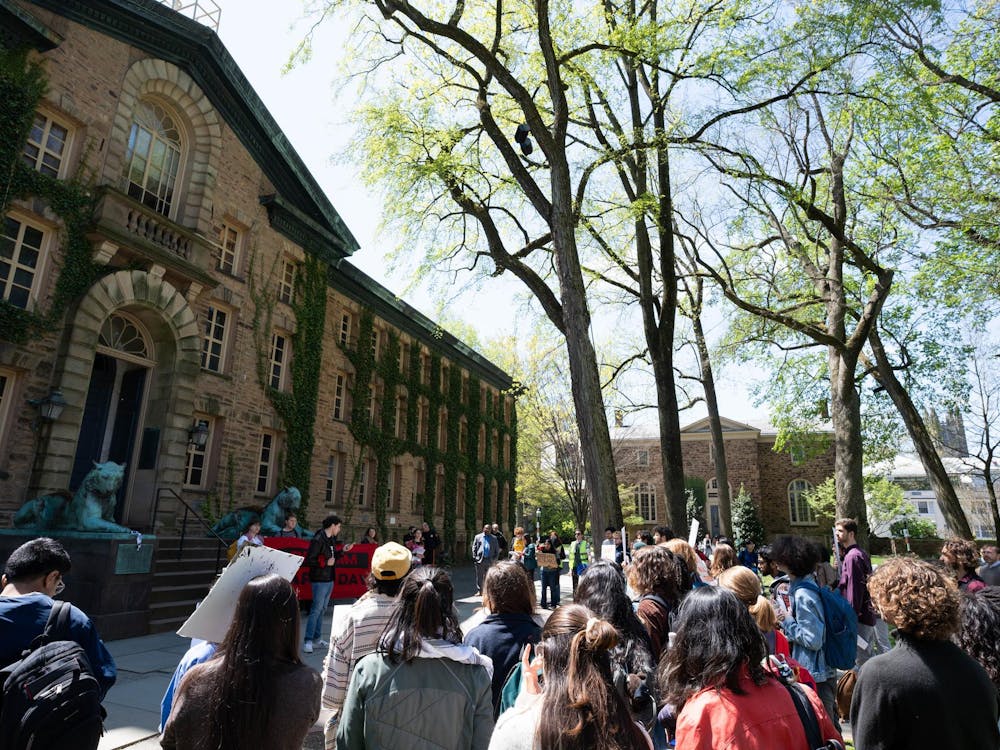Katharine (Kate) Reed ’19 was recently named the valedictorian of the University’s Class of 2019. Hailing from Arnold, Md., Reed is concentrating in history with certificates in Latin American Studies and Spanish. Outside of class, she acts on her passions for language learning and immigrant rights by helping to run El Centro (a program offering ESL classes to immigrant communities in Princeton and Trenton), teaching ESL-adapted history classes at Princeton High School. After graduation, Reed will pursue an MPhil in Development Studies at Oxford as a Rhodes Scholar and will continue thinking about the relationship between social, economic, civil, and political rights in Latin America.
Recently, Reed spoke to The Daily Princetonian about her studies, her experiences at the University, and her hopes for the future.
The Daily Princetonian (DP): What drew you to history, Latin American Studies, and Spanish?
Kate Reed (KR): I came to Princeton, as I think a fair number of people do, thinking I was going to major in Woody Woo which that was basically my way of saying, “I have no idea what I’m going to do, but this sounds kind of cool.” And then I took a course with Professor Karl called “Modern Latin American History” and I was just so drawn to historical analysis and the ways that it emphasizes empathy and understanding of others and really more imaginative kinds of research and thinking than the other majors I was considering. So that course switched me to history, and I’ve loved the department ever since.
I grew up taking Spanish classes, and it was something I just knew I wanted to continue here, so the Spanish certificate was, for me, a pretty easy decision. And then the course in Latin American history also sort of pushed me toward the Program in Latin American Studies, but that has been just such a great and vibrant community, especially because the History Department itself doesn’t have a super strong program in Latin American history, so PLAS has been a really great community and source of friendship and support over the last few years.
DP: What have you studied through your independent work?
KR: My independent work has focused mostly on state violence and its relationship to economic development in Mexico with an emphasis on the 1970s and understanding the ways in which different scales of analysis, from the the local to the national to the international, are connected.
My thesis grew out of a document I actually found here in Princeton's archives because we have the personal papers of the Mexican author Carlos Fuentes. So I wrote my first JP about him, and I came across this really interesting document that had to do with sort of anti-imperialism and the Third World Movement in Mexico, and I became interested in that, and so I decided to do my thesis sort of thinking about the ways in which the anti-imperialist discourse related to or did not relate to state violence within Mexico.
DP: Do you have any advice regarding the process of writing a thesis?
KR: I think probably the most important thing is to remember that the thesis is not everything and that it’s also your senior year and all of the connections and friendships and conversations that you’ve been having for three years are so important to continue. And so letting those kind of sustain you and also inform your work I think is really important.
DP: What was it like finding out that you were valedictorian?
KR: It was a total surprise. So I knew for a few weeks before it became public. I got an email from the Dean of the College that just said, “Please come see me.” And I was like, “Oh my god, what is this? What is happening?” So I went to see her and she was like, “You’re valedictorian!” And I’m like, “I’m sorry, like, what?” So I don’t think I managed to get anything out besides, like, thank you, I’m so surprised, thank you.

And then I left and I called my parents — I was allowed to tell my family — and my mom started screaming and my dad was like, “That’s cool.” My dad’s a character. He’s like, “I’m proud of you.” It was just a really big surprise; I had no idea. But it’s been really cool to have sort of all the different people in my life that are proud of me and excited for me and to have that be something that we can share.
DP: What does being valedictorian mean to you?
KR: It’s a heavy thing in some ways to give a speech in front of a graduating class and to know that for really arbitrary reasons my voice is being elevated. So I’m thinking a lot right now about what that means and what that looks like and how to have this platform and this privilege and this honor that is very humbling but also very intimidating and sort of think about exactly how to manage all that.
DP: When and how did you discover the social justice issues that you are passionate about?
KR: I think a lot of it actually came through Spanish. The people who I met by virtue of being able to speak another language, it really made me more aware of and empathetic to issues that were faced by the immigrant community, especially once I got to college and I was able to be in spaces like that more systematically.
Also being at Princeton, I think with all of the advantages that come with being a Princeton student sort of comes an awareness of the systemic injustices that Princeton also perpetuates. And so that’s something that I think a lot about when I do work with El Centro and realize that Princeton makes it possible, but it also constrains that kind of work in certain ways.
DP: What has been your biggest challenge at Princeton?
KR: Really thinking hard about what I want to do and who I want to be and what that looks like, and I think sort of coming to terms with the fact that it’s not going to be easy. And you know, being at Princeton is hard. It’s hard academically, it’s hard personally, and it’s hard from sort of an institutional perspective. It’s not always an easy place to be if you care about particular things and want things to change in certain ways.
DP: What advice would you give your first-year self?
KR: There is a lot! You’d be surprised how many times I get this question because people think that I have some great wisdom which, I mean, first of all, I don’t think I do. I think part of any journey is the journey and I don’t know that I would tell myself to do it differently because I think doing it the way your gut instinct tells you to do is part of learning.
But I would say don’t be afraid to do what you love even if it doesn’t seem to make sense. I know that I get really attached to a particular narrative of who I am and how I organize the world, and then there are things that I’m like, “Wow! I want to do this! But it doesn’t really fit.” So I think letting go of that and letting the narrative sort of unfold retrospectively more than trying to force yourself into it.
Be grateful but not afraid to challenge the way things work. Because I think Princeton is an intimidating place, but to not take for granted or for given the way that courses divide knowledge or communicate knowledge and to recognize that part of an education is learning to decide for yourself what you want to learn and how you want to learn it and being willing to advocate for that.
I think there have definitely been times that I have been disappointed in myself for prioritizing things in a way that I looked back on and I regretted. You know, putting schoolwork or official extracurricular commitments before personal relationships. I think that’s just another thing that I would tell my younger self: people matter first and your relationships matter first.
DP: How did you manage the difficulties of life at Princeton?
KR: First of all, I don’t know that I do. And second of all, you will forget everything, so write it down. Which I also don’t do, so I forget things. But that’s I guess the pragmatic: write it down … But I think more existentially, I think it comes back again to if you love it, it won’t feel so hard. Which isn’t to say it won’t be hard and there won’t be moments when you go back to your room and cry for an hour because you just need to. But then you find your roommate and she gives you a hug and it’s okay. So giving yourself those moments when it’s just not okay and then going back to the people who let you know that it is and that it will be.
DP: Do you think Princeton has changed you? And how?
KR: I mean, yes, of course! I’ve spent almost a fifth of my life here. So I think Princeton has made me much more sensitive or aware of what I don’t know and of how much I don’t know — both in the academic sense but, more importantly, in the sense of people’s life experiences. And sort of the continuation of that is the need to approach those lived experiences with as much empathy as I can muster and I think to be willing to be vulnerable. That’s something that’s really hard, and I struggle with all the time … By putting me in a position where it’s important [to be vulnerable] but also by not being vulnerable itself, Princeton has illustrated how important that is.
DP: What responsibility do you think you have as a Princeton graduate entering the “real world”?
KR: I think it’s a great question, and I think it’s one that everyone here grapples with in their own way on their own time, and there’s no one-size-fits-all answer to that. I think for me personally — especially because of the position I’m in, having this weird voice now that people listen to more than they should I think, because I’m like, I don’t know what I’m doing! But it’s a tough question and an important question, and I think I’m still working out the answer, but I do feel a sense of obligation. And I think that it’s an obligation, but it’s one that I hope to be able to sort of fulfill in a way that’s also meaningful to me. And to me, that means if I end up being an historian of Latin America, like how does that work? How can that work inform and possibly help create a more kind and empathetic world — especially in this country where issues of race and immigration and language are just so divisive and fraught and cruel? So I think long-term, finding a way to conjugate the things that are so deeply meaningful to me with that sense of obligation is I think something I’m working on.









